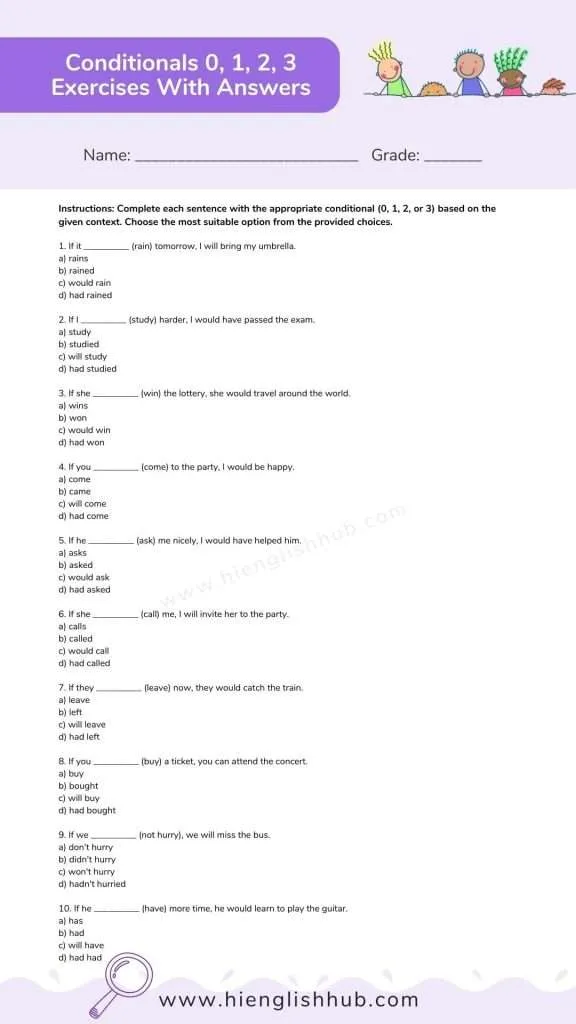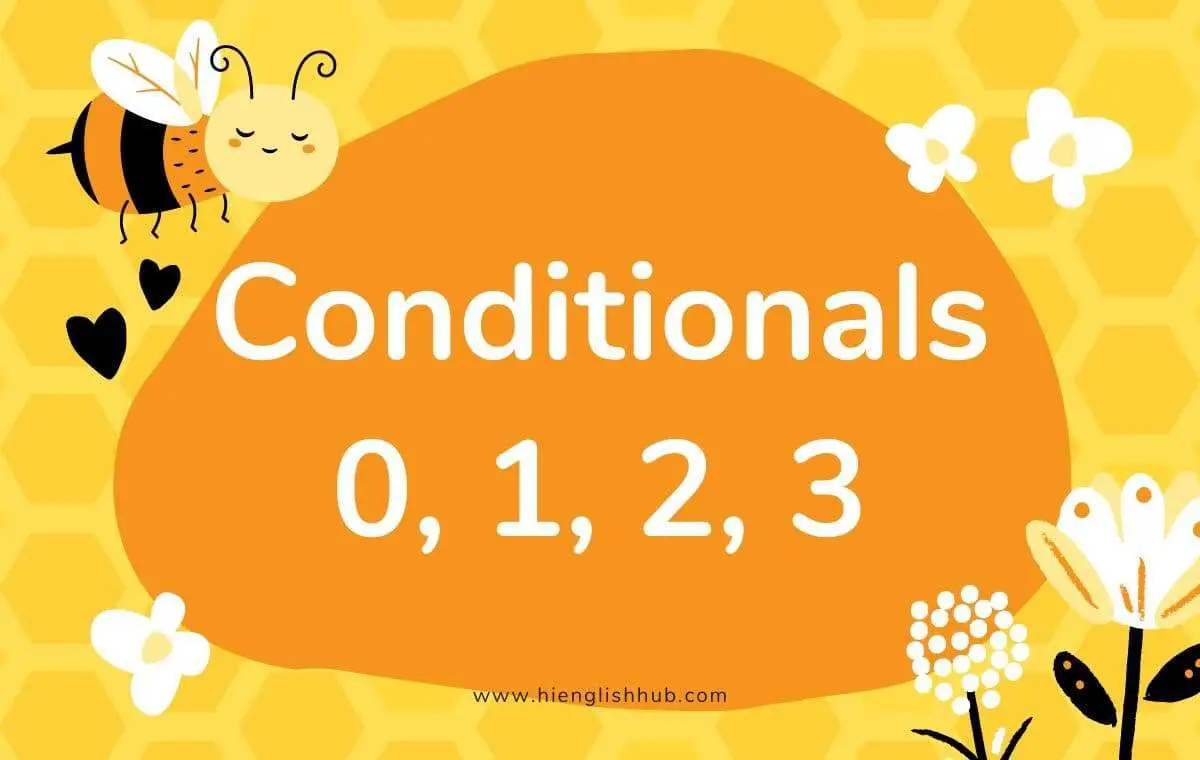If you’ve ever found yourself pondering the intricacies of expressing hypothetical scenarios or talking about potential outcomes, you’re in for a treat.
In this blog post, we’re going to delve into the world of conditionals.
From the zero conditional, where we explore general truths, to the first, second, and third Conditionals, where we navigate real and imagined situations, we’ll cover it all.
So, grab a cup of coffee, get comfy, and let’s embark on this grammar adventure together!
What Are Conditionals?
But what exactly are conditionals?
Well, they are a special type of sentence structure that helps us express situations that depend on certain conditions.
In other words, conditionals allow us to talk about “if-then” scenarios.
Imagine this: You’re planning a picnic, and you say, “If it rains, we’ll have to cancel.” That’s a conditional sentence right there!
You’re basically saying that if a specific condition (rain) happens, then there’s a consequence (the picnic gets canceled).
Conditional Rules
Conditionals come in different flavors, each with its own rules and purposes. But don’t worry; we’ll break it all down for you!
| Conditional Type | Rule | Purpose | Example |
|---|---|---|---|
| Zero Conditional | If + present simple, present simple | Describing general truths or scientific facts | If you heat water to 100 degrees Celsius, it boils. |
| First Conditional | If + present simple, will + base form verb | Expressing real or possible future situations or outcomes | If you use fewer text abbreviations, I will understand your message. |
| Second Conditional | If + past simple, would + base form verb | Talking about hypothetical or unlikely situations in the present or future | If I won the lottery, I would buy a mansion. |
| Third Conditional | If + past perfect, would + have + past participle | Discussing hypothetical or unreal situations in the past | If I had studied harder, I would have passed the exam. |
Conditionals 0, 1, 2, 3 Exercises With Answers

Instructions: Complete each sentence with the appropriate conditional (0, 1, 2, or 3) based on the given context. Choose the most suitable option from the provided choices. The answers can be found at the end.
- If it __________ (rain) tomorrow, I will bring my umbrella.
a) rains
b) rained
c) would rain
d) had rained - If I __________ (study) harder, I would have passed the exam.
a) study
b) studied
c) will study
d) had studied - If she __________ (win) the lottery, she would travel around the world.
a) wins
b) won
c) would win
d) had won - If you __________ (come) to the party, I would be happy.
a) come
b) came
c) will come
d) had come - If he __________ (ask) me nicely, I would have helped him.
a) asks
b) asked
c) would ask
d) had asked
- If she __________ (call) me, I will invite her to the party.
a) calls
b) called
c) would call
d) had called - If they __________ (leave) now, they would catch the train.
a) leave
b) left
c) will leave
d) had left - If you __________ (buy) a ticket, you can attend the concert.
a) buy
b) bought
c) will buy
d) had bought - If we __________ (not hurry), we will miss the bus.
a) don’t hurry
b) didn’t hurry
c) won’t hurry
d) hadn’t hurried - If he __________ (have) more time, he would learn to play the guitar.
a) has
b) had
c) will have
d) had had
Answers:
- a) rains
- d) had studied
- b) won
- b) came
- d) had asked
- a) calls
- b) left
- a) buy
- a) don’t hurry
- b) had
Natural Usage Of Conditionals
When it comes to using conditionals in natural conversations and writing, the key is to make them feel smooth and effortless.
You want to integrate them naturally into your speech or writing to convey your thoughts and ideas effectively.
Here are some tips for using conditionals in a natural way:
1. Be mindful of the context: Consider the situation and the people you’re conversing with. Use conditionals that are relevant and appropriate to the topic at hand.
2. Use contractions: In spoken conversations, using contractions like “I’ll” instead of “I will” or “should’ve” instead of “should have” can make your language sound more conversational and natural.
3. Vary the conditional types: Don’t stick to just one type of conditional. Mix them up to add variety and express different shades of meaning. It keeps your conversations or writing more interesting.
4. Pay attention to verb tenses: Ensure that the verb tenses in your conditionals match the intended meaning. This helps maintain clarity and avoid confusion.
5. Practice active listening: When engaged in a conversation, actively listen to others and respond using appropriate conditionals. This demonstrates your understanding and ability to participate effectively.
Remember, using conditionals in a natural way takes practice. The more you incorporate them into your daily conversations and writing, the more comfortable and fluent you’ll become.
So, embrace the opportunity to use conditionals and watch your English language skills soar!


